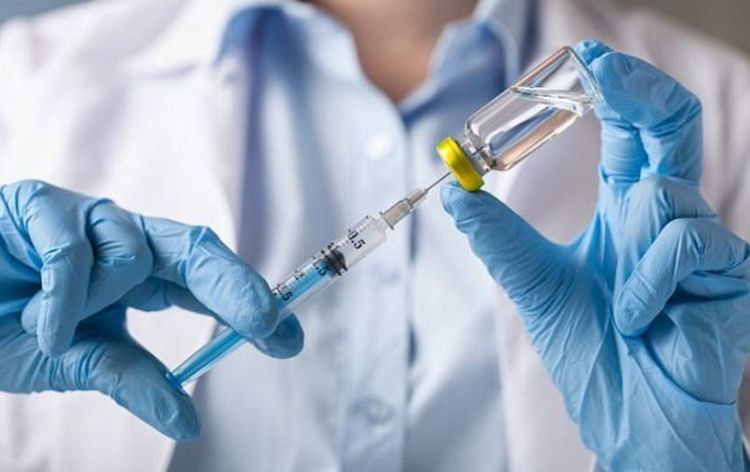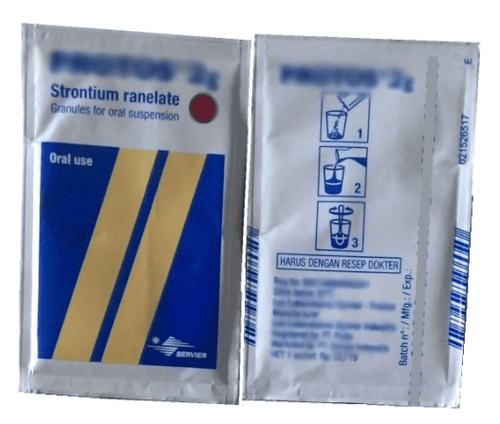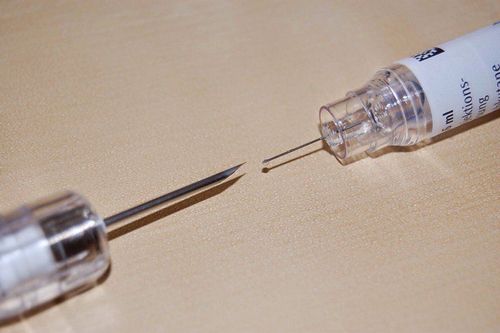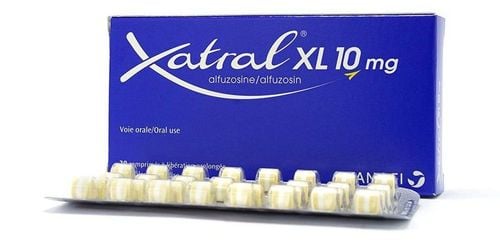This is an automatically translated article.
If prostate-specific antigen (PSA) blood levels suggest that prostate cancer has not been cured or has recurred after initial treatment, additional treatment may still be helpful. The outcome of treatment for recurrent prostate cancer will depend on the location of the cancer and what treatments have been done.
1.Where cancer is still in or around the prostate If the cancer is still only in the area of the prostate then there may be a second successful cure attempt.
After surgery: If you have had a radical prostatectomy, your doctor may prescribe radiation therapy and sometimes in combination with hormone therapy.
After radiation therapy: If the patient's first treatment is radiation therapy, further treatment options may include freezing (cryotherapy) or radical prostatectomy, but when other treatments are available If this treatment is given after radiation therapy, there is a higher risk of side effects such as urinary incontinence. Re-radiation is usually not an option because of the increased chance of serious side effects, although in some cases radiation therapy may be an option as treatment. second value after external radiation.
Sometimes it may not be clear exactly where the cancer is left in the body. If the only sign of prostate cancer recurrence is an elevated PSA level (as opposed to the cancer symptoms seen on imaging studies), another option for some men may be: is active monitoring instead of active treatment. Prostate cancer usually grows slowly, so even if prostate cancer comes back, it may not cause problems for many years.
Factors like how quickly the PSA rises and the initial Gleason score of a cancer can help predict how long the cancer can take to appear in distant parts of the body and cause other problems. If PSA rises very quickly, some doctors may recommend starting treatment even before cancer can be detected in test results or causes recognizable symptoms. .
Monitoring may be a better option for some groups of men, such as those who are older, and whose PSA levels are slowly rising. However, not all men are comfortable with this approach.

Sau xạ trị người bệnh nên thăm khám định kỳ theo chỉ định của bác sĩ chuyên khoa
If PSA rises rapidly enough for a patient to initiate relapse therapy, but local treatments (such as surgery, radiation therapy, or cryotherapy) are not likely to help, then therapy Hormones are usually the next option. If one type of hormone therapy doesn't help, your doctor may try other treatments.
2. Where prostate cancer has spread If a recurrence of prostate cancer has spread beyond the prostate, it will first go to nearby lymph nodes, then to the bone. Often, the cancer will metastasize to the liver or other organs.
When prostate cancer has spread to other parts of the body (including the bones), hormone therapy is probably the most effective treatment. But it is unlikely to cure cancer and at some point the therapy may not work anymore. Usually, the first line of treatment is administration of an LH-releasing hormone agonist (luteinizing hormone-releasing hormone and abbreviated as LHRH), an LHRH antagonist, or orchiectomy, sometimes along with an orchiectomy. antiandrogen or abiraterone. Another option may be combination chemotherapy along with hormone therapy. Other approaches to the treatment of bone metastases may also be indicated.
3. Cases of hormone-resistant and hormone-resistant prostate cancer Hormone therapy is often very effective in shrinking or slowing the growth of metastatic prostate cancer, but the therapy often becomes less effective. more effective over time. Doctors use different terms to describe cancers that no longer respond to hormones. Castrate-resistant prostate cancer (CRPC) is a cancer that is still growing despite the fact that hormone therapy (orchiectomy or chemotherapy) or LHRH antagonists) are keeping testosterone levels in the body as low as would be expected if the testicles had been removed. However, cancer can still respond to other forms of hormone treatment.
Hormone resistant prostate cancer (HRPC) is cancer that no longer responds to any form of hormone treatment.
If the patient has never used anti-androgen drugs, the doctor will usually prescribe this therapy at this time. If the patient has been on antiandrogen drugs but the cancer is still growing, stopping the antiandrogen can sometimes be helpful (though other hormone treatments must be continued).
Other forms of hormone therapy may also be helpful for a while, especially if the cancer causes few or no symptoms. These therapies include abiraterone (Zytiga), enzalutamide (Xtandi), apalutamide (Erleada), darolutamide (Nubeqa), ketoconazole, estrogen (a female hormone), and corticosteroids.

Liệu pháp hormone được ứng dụng trong điều trị ung thư tuyến tiền liệt tái phát
Prostate cancer vaccine sipuleucel-T or Provenge is another option for men with cancer who have few or no symptoms. While this measure may not lower PSA levels, it can often help people live longer.
For cancer that no longer responds to initial hormone therapy and a person has many symptoms, the doctor may prescribe other therapies. Chemotherapy using the drug docetaxel (Taxotere) is often the first choice, as it has been shown to help people live longer, as well as reduce pain. If docetaxel is not effective, other chemotherapy drugs, such as cabazitaxel (Jevtana) may be helpful. Immunotherapy using the drug pembrolizumab may also be an option after chemotherapy, if the cancer is MSI-H or dMMR. Another option may be another type of hormone therapy, such as abiraterone, enzalutamide, or apalutamide (if these are not already being used).
A targeted therapy drug, such as rucaparib (Rubraca), may be an option for men with a BRCA gene mutation that causes orchiectomy-resistant prostate cancer who have received chemotherapy. therapy (including taxane) and antiandrogen. The targeted drug olaparib (Lynparza) is another option for treating men with a BRCA gene mutation who have advanced orchiectomy-resistant prostate cancer after hormone therapy drugs, enzalutamide, or abiraterone have been given use.
Bisphosphonates or denosumab can often be helpful if the cancer has spread to the bone. These drugs can help relieve pain and even slow the growth of cancer in many men. Other medications and methods can also help control pain and other symptoms. External radiation therapy can help treat bone pain that is only present in a few spots. Radiopharmaceuticals can often relieve pain if the cancer has spread, and can also slow the cancer's growth.
If you are experiencing pain from prostate cancer, you should keep your doctor and health care team informed about pain and other symptoms of the disease.

Người bệnh xuất hiện cơn đau do ung thư tuyến tiền liệt cần liên hệ bác sĩ ngay
Early cancer screening is considered a perfect measure in the timely detection and treatment of cancers. Vinmec International General Hospital currently has a high-tech cancer screening and examination package, including genetic testing, imaging, and biomarkers for early tumor detection. A single gene test can assess the risk of 16 common cancers in both men and women (lung cancer, colorectal cancer, breast cancer, pancreatic cancer, cervical cancer) Bowel cancer , stomach cancer , prostate cancer ,....)
Please dial HOTLINE for more information or register for an appointment HERE. Download MyVinmec app to make appointments faster and to manage your bookings easily.
References: cancer.org; webmd.com; hopkinsmedicine.org
MORE:
Learn about prostate cancer Rapid biopsy of prostate cancer Robotic surgery to "blow up" prostate cancer for Japanese doctors













